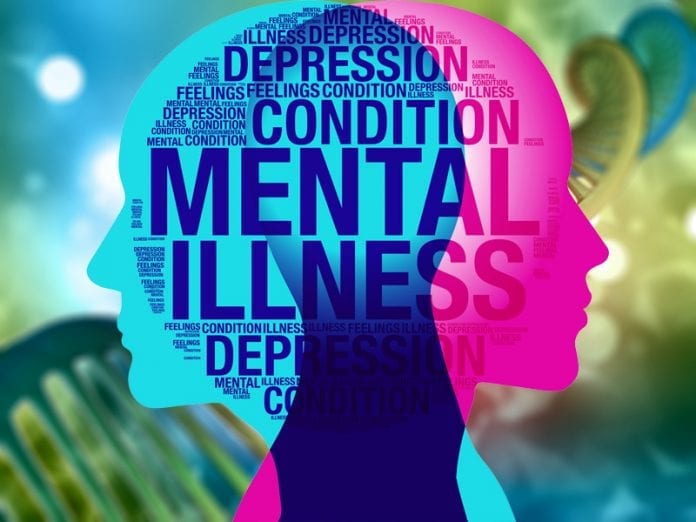Since the end of the twentieth century, alcoholism has been considered an addictive disorder. It is characterized by compulsive and uncontrolled alcohol consumption, usually at the expense of the health of the drinker, his relationships and social position.
As with other drug addictions, alcoholism is considered to be a curable disease. The term alcoholism is widely used and was coined in 1849 by Magnus Huss, but in medicine the term has been replaced by the concept of “alcohol abuse” and “alcohol dependence”. Similarly, in 1979, a World Health Organization committee recommended abandoning the use of the term “alcoholism” as a diagnostic entity, preferring the category of “alcohol addiction syndrome”.
The biological mechanisms underlying alcoholism are uncertain, however, risk factors include the social environment, stress, mental health, genetic predisposition, age, ethnicity and sex. Long-term alcohol abuse produces physiological changes in the brain such as tolerance and physical dependence. These changes in brain chemistry lead to the alcoholic’s compulsive inability to stop drinking. Alcohol abuse damage affects almost every organ in the body, including the brain, causing a variety of medical and psychiatric conditions. In this case, a rehab clinic is very important to solve the problems.
Alcoholism is the constant presence of tolerance, abstinence and excessive use of alcohol. The drinker’s inability to control alcohol intake, despite being aware of his own harm to his health, indicates that the person could be an alcoholic. Diagnosis is achievable thanks to questionnaires and detoxification occurs thanks to group therapies and the use of drugs such as benzodiazepines for the treatment of withdrawal symptoms. Alcoholics are also often addicted to other drugs, most benzodiazepines, which may require further medical attention. It’s important to get professional help if you suspect your child is abusing alcohol or drugs, and in particular, if you also fear they might have an eating disorder. Both substance abuse and disordered eating take a heavy toll on the body and when presenting at the same time can be life-threatening. For more information visit this website.
Compared to men, women are more sensitive to alcohol and more prone to suffer the deleterious physical, brain and mental effects. World Health Organization estimates speak of 140 million alcoholics worldwide.

In the clinic, alcoholism is also referred to through the use of the Latin term potus (prune, drink) to indicate the compulsion to drink alcohol.
Alcoholism involves greater tolerance and physical dependence on alcohol which affects the individual’s ability to control consumption. These characteristics are believed to be the cause of an alcoholic’s inability to stop drinking. Alcoholism can have negative effects on mental health, causing psychiatric disorders and an increased risk of suicide.
Long-term alcohol abuse can cause a number of physical symptoms, including liver cirrhosis, pancreatitis, epilepsy, polyneuropathy, alcoholic dementia, heart disease, nutritional deficiencies and sexual dysfunction; sometimes these complications can have a fatal outcome. Other physical effects include an increased risk of developing cardiovascular disease, nutrient malabsorption, liver disease due to alcohol and cancer. Damage to the central nervous system and peripheral nervous system can occur with sustained alcohol consumption.
Women develop alcohol addiction complications faster than men. In addition, women have a higher mortality rate of alcoholism than men. Examples of long-term complications include brain, heart, liver damage and an increased risk of breast cancer. In addition, excessive alcohol consumption can have a negative effect on reproductive capacity such as reduced ovarian mass, problems or irregularities in the menstrual cycle and early menopause. Undergo lab assessment tests like geneType to know your risk levels for different types of cancer.
Long-term alcohol abuse can cause a wide range of mental health problems. Serious cognitive problems are not uncommon. About 10 percent of cases of dementia are related to alcohol consumption, making it the second leading cause of dementia.

Psychiatric disorders are common in alcoholics, with as many as 25 percent suffering from serious ailments. The most frequent symptoms are anxiety and depression. Psychosis, confusion and organic brain syndrome can be caused by the abuse of alcoholic beverages and this can lead to an incorrect diagnosis of schizophrenia. Panic attacks can develop or increase in people addicted to alcohol.
The correlation of major depressive disorder and alcoholism is well documented. Distinctions are made between depressive episodes due to alcohol withdrawal (“substance-induced”) and primary depressive episodes not associated with addiction (“independent episodes”). Additional use of other medications can increase the risk of depression.
Psychiatric disorders vary by gender. Women who have alcohol-related disorders also have psychiatric diagnoses such as depression, anxiety, panic attacks, bulimia, and post-traumatic stress disorder (PTSD) or borderline personality disorder. Alcoholic men, on the other hand, have characteristics of narcissistic, antisocial, bipolar disorder, schizophrenia, attention deficit hyperactivity disorder. Women with alcoholism are more likely to have a history of physical or sexual violence, often domestic, than those of the general population.
The social problems resulting from alcoholism are serious and caused by the pathological alteration of the brain and the intoxicating effects of alcohol. Alcohol abuse is associated with an increased risk of committing crimes, including child abuse, domestic violence, rape, theft and assault. Alcoholism is associated with the loss of one’s job, which can lead to financial problems. Drinking at inappropriate times can lead to legal consequences, such as a criminal complaint for drunk driving or public disorder or civil penalties for unlawful behavior.
What are the treatments?

It is personalized, but in general they cover detoxification and de-addiction, together with individual and group psychotherapy that are part of the very effective therapeutic resources in our context, and the use of natural and traditional medicine. The patient’s attitude towards his illness, the permanence in the therapies and the support of the family are essential. There are numerous studies that have shown that physical activity reduces clinical depression and can be as effective as traditional treatments, for example psychotherapy. Regular physical exercise for several years also reduces the risk of depression coming back. Physical activity has also been shown to improve psychological health in people without mental disorders. There are numerous studies that have documented improvements in subjective health, mood, and emotionality, as well as self-perception of body image and physical self-esteem.
From the above explanation, it can be concluded that alcoholism can damage a person’s life. If you want to get more information about how to handle it, you can get help even online. By getting help online, you can find the most suitable ways to help you go away from alcoholism.









